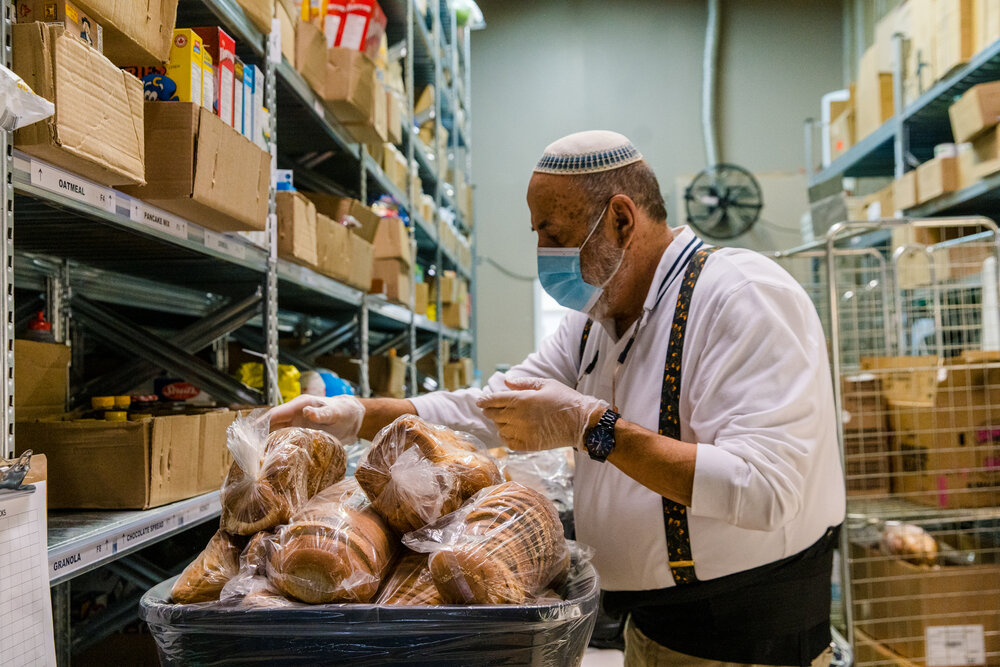Jewish Philanthropy During COVID-19 Focuses on Need, Not Affinity
/Photo: Shawn Goldberg/shutterstock
As COVID-19 remains an unprecedented challenge for global society and its social institutions, research has increasingly informed the public about the role of philanthropy in meeting the immediate and long-term needs created by the pandemic.
Yet amid the focus on exceptionally high rates of giving totaling over $22.7 billion, similar reports about community-based giving or the scope of philanthropy by faith-based and ethnic communities have been relatively scarce. In fact, current studies about the role of philanthropy during COVID-19 have focused on the role assumed by corporate philanthropy and changing donor practices.
My recent study suggests that American Jewish philanthropies have risen up to the pandemic’s immediate challenges for American and global society by providing more than $1 billion to local needs and directing the majority of those funds outside of the Jewish community in 2020. As COVID-19 crosses all communities and boundaries, it has led Jewish organizations to strengthen their tradition of supporting charitable causes based on need and not on affinity.
My research on the largest Jewish private foundations, community foundations, Jewish federations and nonprofit organizations suggests that 82 organizations (31% of 266) pledged COVID-19-related funding between March and December of 2020. These included 55 private foundations that pledged over 80% of their allocations, 13 federations, eight community foundations and additional organizations engaged in grantmaking. Many organizations did not report all the details related to their giving, and many distributed smaller grants and donations, but my study captures a substantial share of Jewish giving toward causes surrounding COVID-19 during 2020.
Total giving amounted to $1.09 billion, which constitutes nearly 5% of global giving in response to COVID-19 in 2020. Pledged funds in this case were explicitly donated in response to the pandemic or its consequences—for example, to buy personal protective equipment or fund vaccine research. Resulting donations dealt with the effects of the pandemic, such as cash assistance for those who have lost their jobs, childcare for essential workers, or aid to nonprofits and institutions that needed additional funds to adjust their programming.
Top givers included the Foundation to Promote Open Society and Bloomberg Philanthropies, both among the top 22 COVID-19 response givers worldwide, as well as the Michael & Susan Dell Foundation, the Charles and Lynn Schusterman Foundation and the UJA-Federation of New York. Grants were distributed across immediate and mid- to long-term COVID-19 relief initiatives, including health-related recovery funds, medical research, pantries, prepared meals, assistance for healthcare workers and first responders, cash assistance, interest-free loans, career services, economic development, funds for small business, welfare assistance, hospital-related infrastructure costs, shelters, rental assistance, mental health services and social services.
Of the total giving, $367 million (34%) was pledged to Jewish causes and organizations, including causes in Israel, while over $664 million (61%) was pledged to non-Jewish causes, and $57 million (5%) of the funding was not classified. This suggests that decisions about funding were influenced by broader needs in local settings. Giving was highest in April ($418 million), followed by March ($168 million) and October ($82 million).
Gifts were pledged overwhelmingly to U.S.-based organizations. The states receiving the most aid were New York ($149 million), California ($122 million), Illinois ($35 Million) and Georgia ($22 million). International pledges were highest for South Africa, Israel and the UK. The study sample included $14.7 million pledged to Israeli causes by 10 organizations, including the Leona M. and Harry B. Helmsley Charitable Trust, the Russell Berrie Foundation, Jewish Federation of Greater Atlanta and the UJA-Federation of New York. This sample does not include all gifts made to Israel, but it indicates that most Jewish philanthropies prioritize their responses to local needs stemming from the pandemic, with contributions to Israel comprising less than 4% of pledges to the Jewish community.
More recent pledges to the Jewish community were made toward long-term causes, including sustaining Jewish day schools, operational funds of nonprofits, remote learning/work infrastructure, scholarships, tutoring and grants supporting specific populations such as the elderly, teens and youths, and immigrant needs.
Ultimately, the pandemic era has proven that when it comes to philanthropy and grantmaking, the Jewish community is motivated by universal values of social justice, kindness and repairing the world, looking far beyond itself.
Hanna Shaul Bar Nissim, Ph.D., is the Deputy Director U.S. at the Ruderman Family Foundation and a Visiting Scholar and Adjunct Associate Faculty at the Lilly Family School of Philanthropy at IUPUI.









